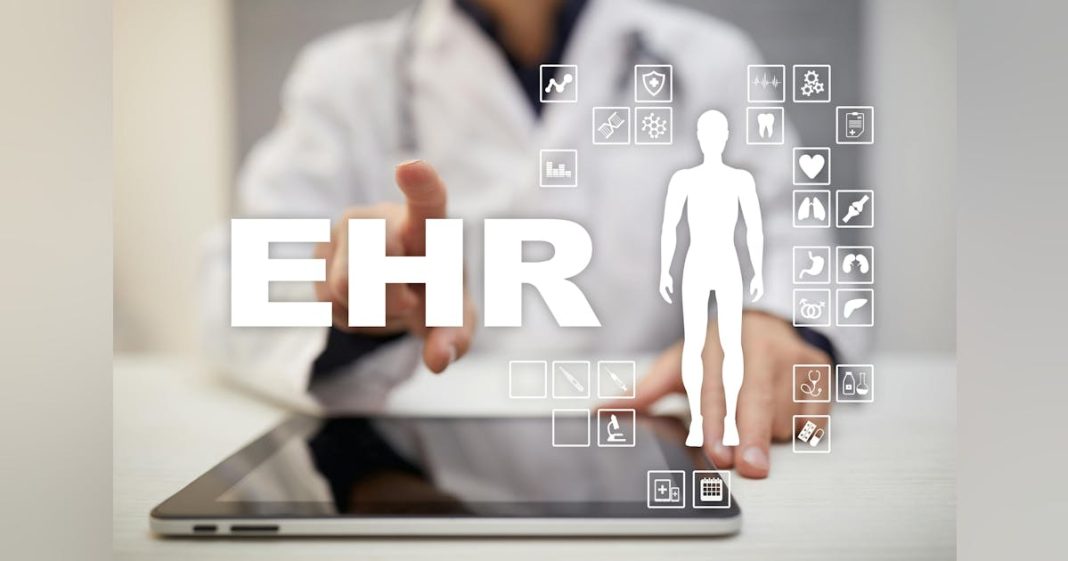Major EHR companies such as Epic and Oracle are not alone in developing AI scribe technology to help with clinical note-taking; niche EHR startups are getting in on the act as well. For instance, using Orchid, an AI-powered EHR for mental health, clinicians such as psychiatrists can automate the clinical note-writing process.
With patient and clinician permissions, Orchid can train itself on the clinician’s style and can use past clinical notes to draft new ones for continuity of care. Orchid can also summarize medical histories, suggest billing codes and diagnoses, and provide after-visit summaries.
Psychiatrist David Halpern, M.D., has been using the Orchid EHR for a few years and has given feedback on its development.
“The amazing part about the Orchid AI is that it learns from what I put into it,” Halpern explained. “So if in my classical SOAP note, for example, I want put in the top what I talked about with the patient. Then I have a mental status exam template that I created, and then I have an assessment and plan at the end. After I talk to the patient, the AI is able to do an accurate mental status statement in there. For me, it puts in the appropriate things that we talked about up top, and it changes the medications in the bottom. All I have to do is spend a minute or two checking it to make sure that it doesn’t have anything wrong. And each time, it does get better, and it really cuts down a good five minutes per patient. And if you’re seeing patient after patient after patient — two to three an hour for an eight-hour day — that can save you hours of time. It helps me see a lot more patients.
“It’s a great time financially to be a psychiatrist,” Halpern said, “but I see a lot of people struggling. A lot of people need help. And the most common conversation was, for a long time, I don’t have availability.”
That time savings was actually the impetus for the company’s creation, according to CEO Joe Pomianowski. He noted that traditional EHRs built specifically for mental health tend to be built on antiquated technology. The main goal of Orchid is to help automate a lot of administrative tasks to reduce these clinicians’ burdens, so they could spend more time with patient care.
“I’m a lawyer by training,” Pomianowski explained. “A lot of my colleagues couldn’t get the care that they wanted. And when I asked them why, they said all the therapists are booked out. So here are my friends who desperately needed access to vital mental healthcare. And when I contacted the clinicians, they said they book out particular days of the week just to do admin work. So I recognized that the only way I could help my friends is if I help the clinicians reduce their admin work, and that’s what led us to start Orchid.”
Here is how Orchid describes its solution: With Orchid, clinicians can automate much of the clinical note-writing process, by recording patient sessions (with patient permission), or if the clinician or patient declines to be recorded, by dictating or typing high-level notes and letting Orchid do the rest. Clinicians can use Orchid’s existing note templates, from SOAP to DAP notes, or use their own template which Orchid can then follow. With the clinician’s permission, Orchid’s AI can train itself on the clinician’s style and can use past clinical notes to draft new ones for precise continuity of care. Additionally, Orchid can summarize medical histories, suggest billing codes and diagnoses, and provide after-visit summaries to increase patient retention. It’s compliant with insurance company requirements, making it simpler for clinicians to accept insurance. Thousands of clinicians are already using Orchid’s EHR.
Orchid went through the Y Combinator startup accelerator program. “One of Y Combinator’s mantras is to build something your customers want. And we did that,” Pomianowski said. “We interviewed a lot of clinicians. We learned that they spent a significant amount of their time on note taking. There are a lot of places where we found we can reduce admin burdens, but note taking was a huge burden for them.”
The company started in the New York and Philadelphia areas by reaching out to local clinicians. “Friends of of mine who are clinicians put the word out,” Pomianowski said. “Clinicians we were designing the product with us let their friends know. So it kind of it grew organically, and still is growing organically.”
He said there are additional features, such as e-prescribing, that will be added in 2025.
“We think we’ve saved clinicians at least five hours a week, and they’ve been able to take on more clients,” Pomianowski added. “In fact, I’ve definitely helped my friends by introducing them to clinicians on Orchid, so my original goal has been met — helping my friends. We’re backed by investment leaders like Y Combinator and we’re really dedicated to leading the charge and reducing what is a $1 trillion administrative burden on our healthcare system. As we continue to grow and expand, we’re just going to remain focused on supporting clinicians and improving healthcare outcomes.”
Halpern said his hope for the future is that the technology is going to continue to improve and integrate “to the point where seeing your psychiatrist could be just like coming in and talking to someone the way it used to be before all the records and everything. And there just happens to be a little AI in the background recording, and it creates everything for you, and the doc takes a look at it afterwards,” he said. “But otherwise, it just takes care of that for you. And that would be a return to the way medicine used to be and should be.”







